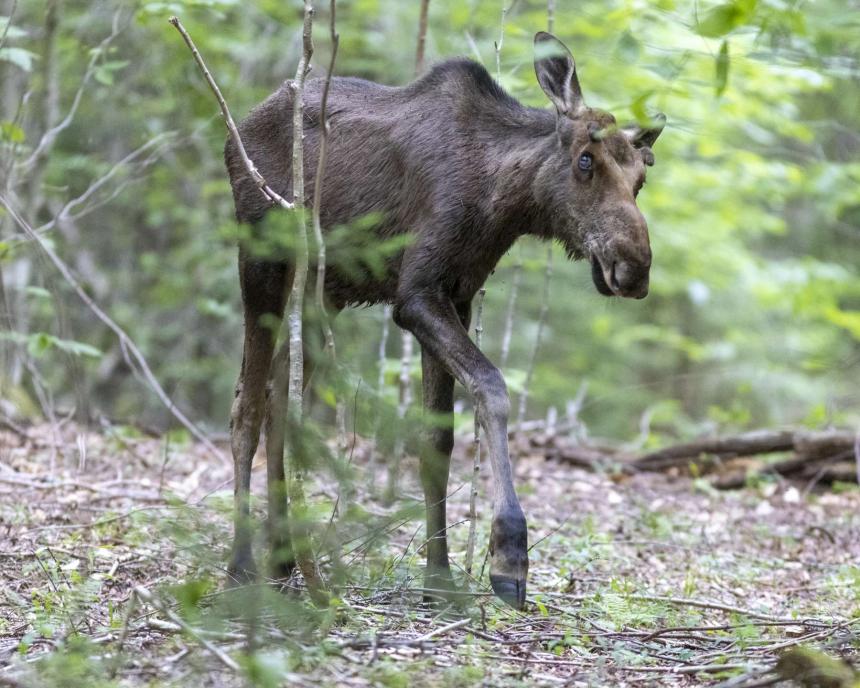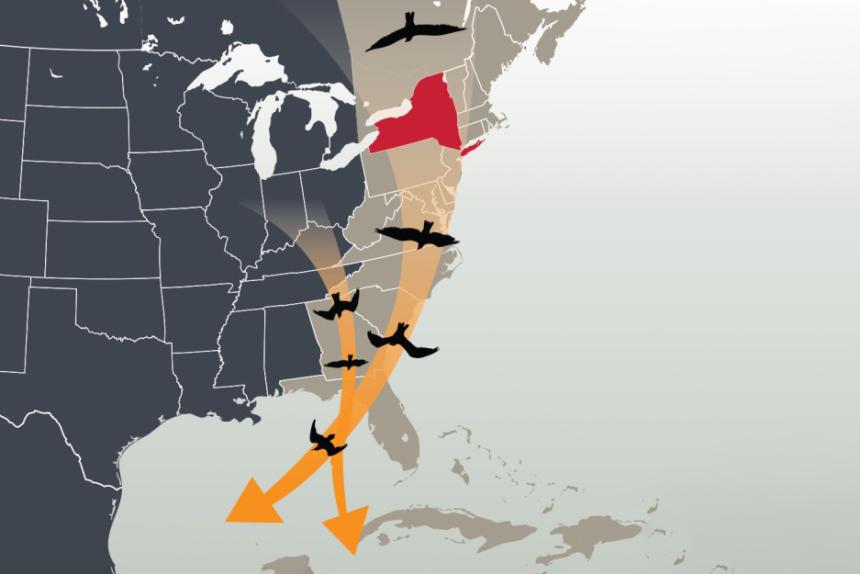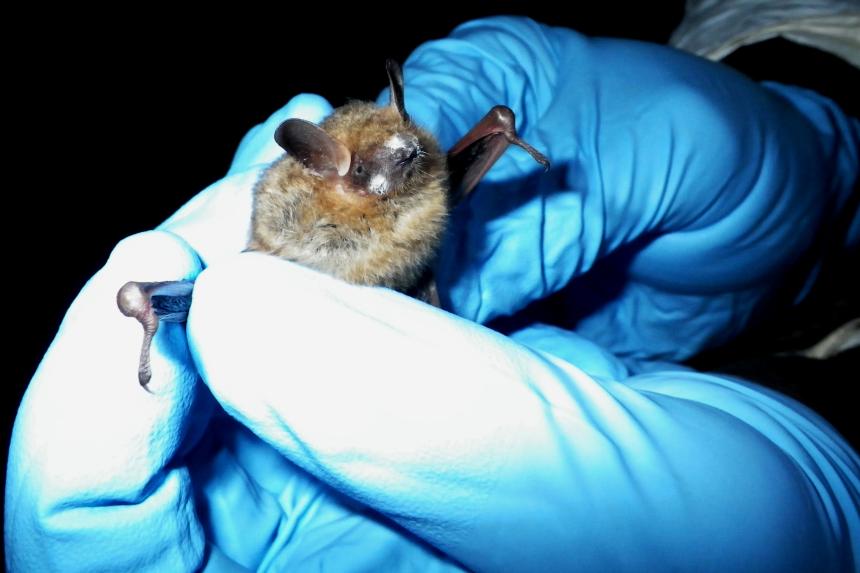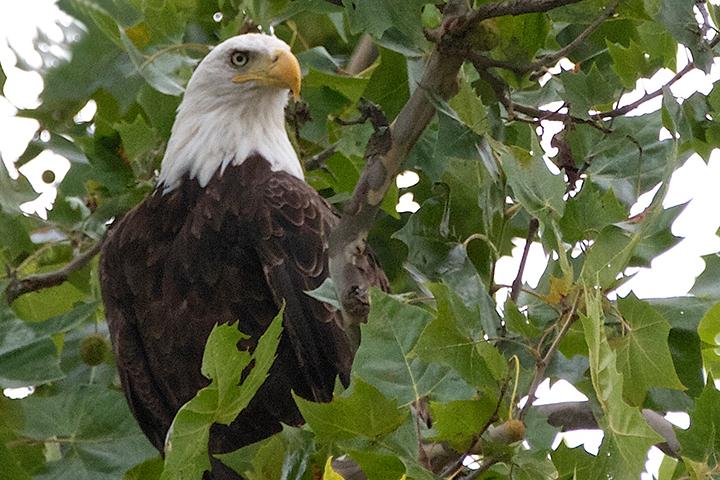In the News

For Your Information
October 07, 2022
This perspective piece, co-authored by Cornell's Dr. Robin Radcliffe, highlights how wildlife health is an important part of the North American Model of Wildlife Conservation, which guides wildlife management and conservation decisions in the U.S. and Canada, and is vital to its future.

October 04, 2022
Moose returned to New York in the 1980s, but their population hasn’t grown as scientists expected. Research teams, including those at Cornell University and the Shingle Shanty Preserve and Research Station, are studying whether ecological and/or disease issues are causing this stagnation in moose population growth.

September 30, 2022
As part of a collaborative network, Cornell scientists are helping to track and detect highly pathogenic avian influenza in New York State. Cornell's Dr. Krysten Schuler notes that in addition to migratory birds, other wild birds can also be infected, such as bald eagles, owls, and other birds of prey.

September 26, 2022
The U.S. Fish and Wildlife Service is proposing listing the tricolored bat as endangered after its population declined due to white-nose syndrome. Cornell's Dr. Elizabeth Buckles notes that the tricolored bat in particular has been in trouble for a long time and that this decision is long overdue.

September 07, 2022
Poultry health, harmful algal blooms, and Kenyan fishing communities—you might be wondering, how exactly are these concepts linked? Join me on the tale of my summer in Kenya, where I was exploring these topics....

September 01, 2022
In a large-scale effort to reduce human infectious diseases and conserve human and animal life, researchers have collated and reviewed the evidence for 46 solutions that aim to advance the United Nations’ Sustainable Development Goals.

August 29, 2022
Cornell and regional partners have, over many years of collaboration, developed innovative ways to resolve conflicts at the wildlife-livestock interface in the interest of advancing transfrontier conservation and sustainable economic development.

August 26, 2022
A bald eagle surprised fellow travelers as it was spotted being taken through a TSA checkpoint at a U.S. airport. Cornell's Dr. Krysten Schuler, who led a study showing bald eagles' population size is being threatened by lead poisoning, comments, "Even though the population seems like it's recovered, some perturbation could come along that could cause eagles to decline again."

August 22, 2022
Results of a recent study, including Cornell veterinary student Michelle Greenfield, DVM '23, as first author, indicate that some relationships established by common bottlenose dolphin calves are maintained into their juvenile stages.

Video
August 12, 2022
“This is why we do what we do,” says Cornell Wildlife Health Center director Dr. Steve Osofsky, who took this video of an elephant herd this spring while working with local partners in the Kavango Zambezi Transfrontier Conservation Area in southern Africa.
